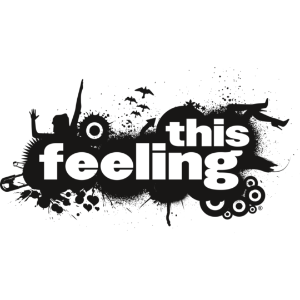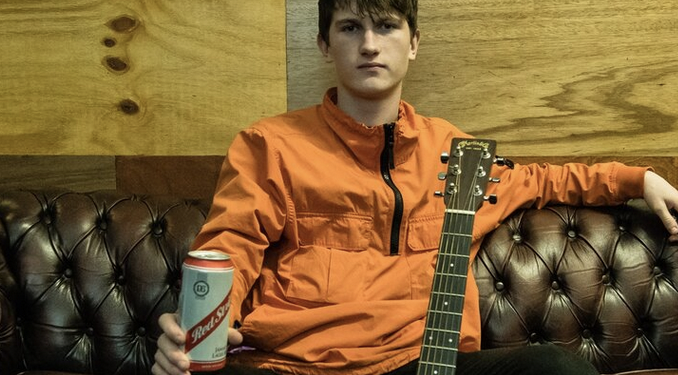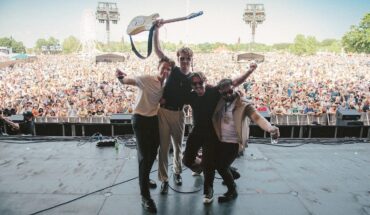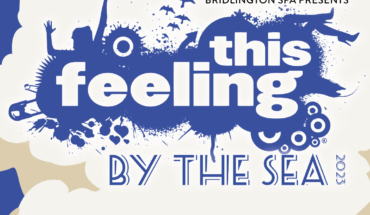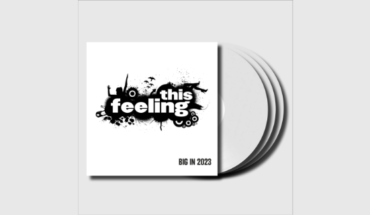Words: John Earls Photo: Jon Mo
Fresh from his Noel Gallagher collaboration Where’s My Family Gone with Noel Gallagher, Newcastle’s finest young singer-songwriter Andrew Cushin tells John Earls how music helped him overcome a troubled home life – once he’d stopped wanting to smash his guitars up and trying to be the best small goalkeeper in the country.
“You’ve got to take the fanboy attitude away straight away with Noel. If I was there just to meet him, I’d have been more into staring into his eyes and trying to see into his soul. But I was there to do a job.”
Like most young men who’ve picked up a guitar in the past 25 years, Oasis were one of the reasons Andrew Cushin wanted to become a musician. Unlike 99.9% of them, the 20-year-old Geordie’s demos were good enough to win Noel Gallagher’s enthusiasm. It led to Noel producing Andrew’s third single, Where’s My Family Gone. Noel also plays guitar, bass, tambourine and shakers on it. He sings backing vocals. But Noel asked to keep his name off the main credits, knowing that any hint of “Featuring Noel Gallagher” on the song would mean he dominated the attention, not Andrew Cushin.
“Noel told me ‘I hope we record together again, but you’ve got to do the graft now,’” recalls Andrew. “Noel told me about a band he worked with a couple of years ago who assumed that, because Noel’s name was on their record, that was it: the work was done. Noel was great at emphasising Where’s My Family Gone is my song, not his. But he helped make it bigger, by adding the bridge and another chorus. Where’s My Family Gone is quite slow and melodic, and Noel helped change it into something more relatable and heartfelt.”
Talking to Andrew, it’s easy to see why he’d be able to hold it together in the studio with his hero. Very little seems to faze the easygoing, quietly funny kid from Newcastle who was set to be a goalkeeper before his dad bought him his first guitar aged 16. Like Noel, Andrew is a practical songwriter, able to write anywhere: Where’s My Family Gone was written in his hotel room before a gig in Leeds, after Andrew’s manager Leigh McFarlane told him they needed to leave in 15 minutes. “Back then, I’d tune my guitar at the hotel and hope it was still alright onstage,” Andrew laughs. “I started strumming, and Where’s My Family Gone just fell out. When Lee came back from his room and heard me sing it, he went ‘That’s great! Who wrote that?’” It’s typical of Andrew’s spontaneous approach, as he summarises: “The best songs come at once. It’s the same with any art: painters say their best art comes from attacking the canvas. It’s you, pouring your heart out. If I’m sat with a guitar for longer than an hour-and-a-half, nothing that great is going to come out.”
Andrew has been pouring his heart into his songs since first getting his hands on a guitar. He’s got a lot of life to put into his music. “I was always good at English,” he recalls. “My dad was in the Army before I was born. He had a big book of poems he wrote when he was stationed in Northern Ireland, and he passed the knack on to me. I was looking for a way to deal with some of the shit I had going on. I’d hated poetry at school, as it was classic English teacher crap: going through boring old poems just to analyse them. But I wrote a little poem and it stuck from there.”
Having inherited his wordplay from his dad, Andrew’s mum had the family’s singing talent: “She was an amateur singer before giving it up for a lifetime of smoking,” notes Andrew. “Mam had a complete meltdown recently when I said I needed a female backing vocal for a new song and I’m insistent it can’t be her!”
Aware that The Beatles and Bob Dylan had tried writing poems as a gateway into songwriting, learning the art of rhymes and structure, in hindsight Andrew thinks his poetry was always composed with an eye on becoming a singer. Most important was having any avenue of escape. “There was a lot of shit going on at home,” Andrew explains calmly. “The police came on a regular weekend basis. From the age of six or seven, I saw a lot of traumatic stuff: there was a lot of violence in the house. I’d learned to live with it but, as I started getting older, I’d think ‘You know what, this is really wrong.’ It could have turned me bitter. I wasn’t in a particularly great crowd and some of the kids I hung around with then are dealers now. That’s the flip side of the coin I faced, because music saved me. It was a great big part of turning things around. The guitar was the saviour in my house.” As well as poetry, Andrew’s father had been an amateur guitarist: dad’s battered guitar is still at home. “When I got my first guitar at 16, I was absolutely dreadful,” Andrew admits. “Dad bought me a naff guitar off eBay, but he knew what he was doing. I was a temperamental kid – if I couldn’t do something by the second time, I’d give it a kick. Dad was sick of me throwing the guitar on the floor, and that crappy first guitar lasted about five days before I smashed it. But it left its mark. When I was 17, I got my first proper guitar, an Epiphone. And I’ve still got that.”
The transition from poetry to songwriting followed instantly. “I’d get stoned with my mates, but I’d turn that last joint down to go home and play guitar,” says Andrew. “Just as everyone else was starting to really enjoy themselves, I’d be away home. I’d found that outlet that worked for me, knowing music was more beneficial than getting off my face with my pals.” His early single Waiting For The Rain was the “second or third” song he ever wrote, a turning point as it was “the first song I tried putting a real story in,” about going to a friend’s house to escape more trouble at home. “I knew it was good, because it was real,” he emphasises.
Naturally, not all Andrew’s early songs were so accomplished. During one early gig, he played a song written that day about Newcastle’s quayside which he was excited about because of its catchy chorus. Coming off stage, a fan confronted Andrew. “This guy said to me ‘I can’t believe you’ve just done that!’” Andrew remembers. “I was baffled until he pointed out I’d totally ripped off Club Foot by Kasabian! Different lyrics, same song. Mortifying.”
By then, it was clear Andrew would have to give up his potential career as a goalkeeper. Andrew was in the youth team of Northern League side Newcastle Benfield, whose previous players include York City striker Richard Brodie and Plymouth defender Stuart Elliott. “I adored football and had various trials, but I was 4ft-nothing until I was 14,” laughs Andrew. “Plus, football is only so therapeutic. Going onto the pitch, you can forget about everything for 90 minutes. But when you come off it, everything else comes back.” Benfield’s youth team manager was Lee McFarlane, now Andrew’s manager – and a friend of Noel’s since working for British Airways and finding Noel’s precious guitar when it went missing on a flight in the mid ‘00s. “Leigh rang me half-pissed one day last year and said ‘I’ve sent Waiting For The Rain to Noel,’” Andrew says. “A couple of days later, Noel sent a message back: ‘That’s actually not too bad. Do you have anything else?’”
Once word spread that Noel Gallagher was interested, Andrew’s career took off. Bye-bye goalkeeping. “If I was a centre-forward, I could have got away with the odd game,” Andrew insists. “But as a goalkeeper, what if I injured my hand or broke my arm?” He dismisses the idea of following Serge Kasabian into Soccer Aid, admitting: “I take football too seriously. It’s a great charity, but the players just think it’s a laugh and I wouldn’t. I’d get subbed after five minutes for threatening to chin Robbie Williams.”
Andrew wasn’t unknown to This Feeling when Noel showed interest. With typical enthusiasm, Andrew is keen to stress how helpful TF has been. “This Feeling has been absolutely huge,” he enthuses. “You’ve been so supportive and I owe you all a lot. This Feeling is the foundation any artistshould play at, as it’s where you learn your craft. It’s been great for the North East in general, helping brilliant talent like The Voyd and Social Room.” We also hooked Andrew up with The K’s, who the young Geordie supported on a tour at the start of the year. “I’m obviously delighted I at least got one tour in before lockdown,” Andrew says. “I’m glad it was with The K’s – a great live band and brilliant lads with it.”
As supportive as Noel was in the studio, he helped Andrew be realistic about his songwriting gifts. “I told Noel I’d got 65 songs,” Andrew explains. “Noel actually laughed at me – he’s probably got thousands! And, to be fair, those 65 songs aren’t all great. Some are building blocks. But I’d say 20 are great. I’ve definitely, definitely got enough for a great album.
“But I don’t intend releasing it for another two years. I need enough of a following to storm the charts. Why waste the material? In the meantime, if my songs can help a 15-year-old in a similar place to where I was, brilliant. If my music drowns out the shouting, bawling and things getting smashed up, so it brightens their life up for three-and-a-half minutes – that’ll absolutely do me.”
